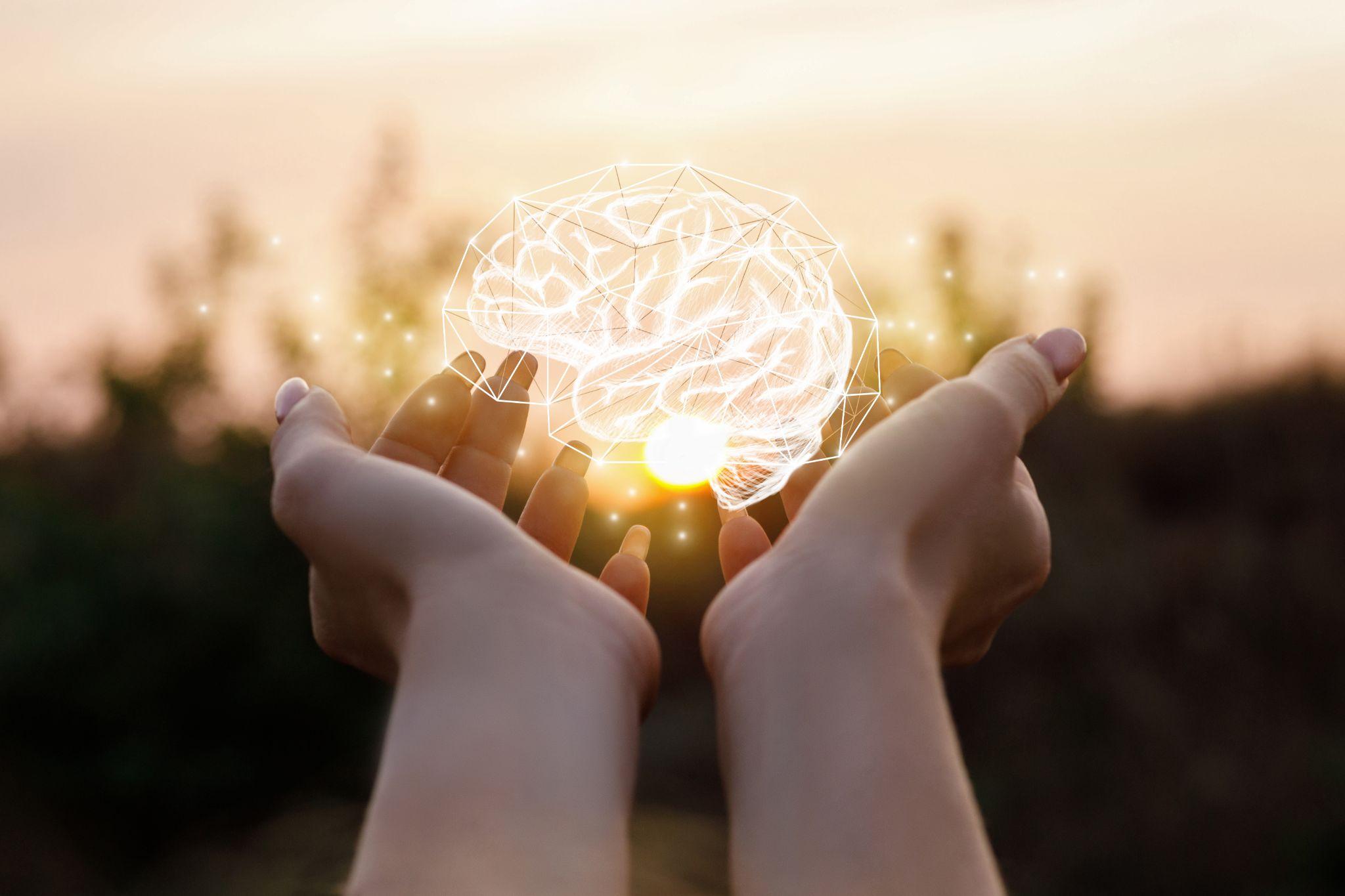Addiction is often shrouded in misconceptions and stigma, but advances in science and psychology have paved the way for a more comprehensive understanding.
The brain disease model of addiction identifies addiction as a chronic and relapsing disorder marked by persistent and compulsive drug seeking behavior, ongoing usage despite its detrimental effects, and enduring alteration in brain function.
Below we will explain this complex model, fostering a clearer understanding of addiction and its impact on the brain.
1. What is the brain disease model of addiction?
The brain disease model of addiction views addiction as a chronic disease that alters the brain both structurally and functionally. This model emphasizes that these changes in the brain are fundamental in developing and sustaining addiction.1
It’s based on extensive research showing that long-term substance abuse significantly impacts areas of the brain involved in reward, motivation, learning, and decision-making. These changes explain why individuals with addiction continue to seek and use substances despite adverse consequences.1
This model also underscores the role of genetics, environment, and personal history in the development of addiction. For instance, genetics can influence how susceptible a person is to addiction, while environmental factors like exposure to drugs at a young age or stressful life events can trigger or exacerbate the condition.1
Understanding drug addiction as a brain disease helps in developing more effective evidence-based treatment strategies. It moves the focus from blame and punishment to medical treatment and rehabilitation, acknowledging that recovery involves restoring healthy brain function and developing coping mechanisms.
2. How does addiction change the brain?
Addiction can profoundly impact the brain, leading to both structural and functional changes. These alterations are especially pronounced in areas involved in reward, motivation, and memory.
Altered Reward System: Drugs and alcohol create an intense activation of the brain’s reward system, far more than natural rewards like food or social interactions.1
This overstimulation leads to the “high” associated with drug use. Repeated exposure alters the reward circuit, making it hypersensitive to the substance while diminishing response to other rewards.
Impaired Executive Function: The prefrontal cortex, crucial for decision-making, impulse control, and judgment, is significantly affected by addiction. This impairment leads to increased impulsivity and poor decision-making, making it harder for individuals to resist the urge to use substances.1
Changes in Learning and Memory: The hippocampus and amygdala play roles in forming and storing memories associated with substance use. This can lead to strong conditioned responses to cues associated with drug use, making relapse more likely.1
Neurotransmitter Imbalance: The National Institute on Drug Abuse explains that drugs can disrupt neurotransmitters like dopamine and serotonin, leading to imbalances that affect mood, behavior, and thought processes.2
Over time, the brain’s chemistry and circuitry adjust to the presence of drugs, making it challenging to feel pleasure or maintain mood stability without them.2
The changes in the brain due to addiction can be long-lasting, but they are not always permanent. With proper treatment and support, the brain can recover, regaining healthier functioning over time.
3. Is addiction a choice or a disease?
Understanding addiction as either a choice or a disease is key to how we approach treatment and support for individuals struggling with substance use.
Initially, the choice to use substances is often voluntary. However, as addiction develops, changes in brain chemistry and functioning significantly reduce a person’s ability to choose not to use substances.
Biological Factors: Genetics can play a significant role in an individual’s susceptibility to addiction. Research indicates that genetic factors account for about 40-60% of the risk for addiction.3
Neurological Changes: The brain disease model of addiction shows that substance use disorder leads to alterations in brain regions responsible for decision-making, impulse control, and judgment.2
These changes can diminish an individual’s ability to resist the urge to use substances, making addiction a matter of impaired brain function rather than just poor choices.
Psychological Factors: Mental health disorders, trauma, and chronic stress can all influence the likelihood of developing an addiction. These conditions can affect brain function and structure, making individuals more susceptible to the lure of substance use as a coping mechanism.1
Social and Environmental Factors: Factors such as family environment, peer influence, socioeconomic status, and exposure to trauma can significantly impact an individual’s likelihood of developing an addiction.
Recognizing addiction as a disease rather than a moral failing or a simple choice encourages more compassionate and effective approaches to treatment and reduces stigma, which can be a barrier to seeking help.
4. Does the brain recover after addiction?
The brain’s capacity to heal and rewire itself after addiction is remarkable, but this recovery is often a gradual process and can vary from person to person.
Neuroplasticity: The brain’s neuroplasticity allows it to adapt and change throughout life. This means that with time and appropriate treatment, the brain can form new neural pathways, regaining healthier functioning that was impaired by addiction.3
Recovery Timeline: The timeline for brain recovery can depend on several factors, including the length and severity of addiction, the type of addictive substances used, and the individual’s overall health.
Some changes, especially those related to decision-making and impulse control, can begin to reverse relatively quickly. Other changes, particularly those affecting the brain’s reward system, may take longer.
Healthy Lifestyle Contributions: Engaging in healthy behaviors can facilitate brain recovery. Regular physical exercise, a balanced diet, sufficient sleep, stress management, and engaging in mentally stimulating activities can all support brain healing.
Ongoing Treatment: Continuous engagement in treatment and recovery activities is crucial. This can include therapy, support groups, and, in some cases, medication-assisted treatment to help manage cravings and reduce the risk of relapse.
The Role of Social Support: Positive social interactions and support can enhance brain recovery. Being part of a supportive community can provide emotional benefits and encourage healthy lifestyle choices, which are essential for brain healing.
5. How can we support someone with addiction?
Supporting someone with addiction is a multifaceted process, requiring empathy, understanding, and patience.
Educate Yourself: Understanding the brain disease model of addiction helps in recognizing that addiction is a complex disease, not a choice or moral failing. This knowledge can foster a more compassionate and supportive approach.
Offer Emotional Support: Listen without judgment and offer encouragement. Let them know you care about their well-being and are there to support their recovery journey.
Encourage Professional Help: Gently encourage them to seek professional treatment. Offer to help them find treatment options and support them through the process of getting help.
Be Patient: Recovery is a long and non-linear process. There will be challenges and possibly relapses. Patience and understanding are crucial during these times.
Take Care of Yourself: Supporting someone with an addiction can be emotionally taxing. Ensure you’re taking care of your own mental and emotional health, and seek support if needed.
Stay Informed and Involved: Stay informed about the recovery process and be involved as appropriate. Attend support groups for families and friends of those with addiction to better understand how you can help.
Learn More About the Brain Disease Model of Addiction with Lumina Recovery
Understanding addiction as a specific brain disease requires shifting perspectives and recognizing the complexity of various factors that contribute to addiction.
At Lumina Recovery, we believe in providing compassionate, evidence-based care that addresses the unique needs of each individual through specialized programs, therapy, and dual diagnosis treatment.
By embracing the brain disease model of addiction, we foster a more empathetic and effective approach to treatment and recovery. Contact us today to learn more about how you can support yourself or a loved one through addiction.
Sources:



